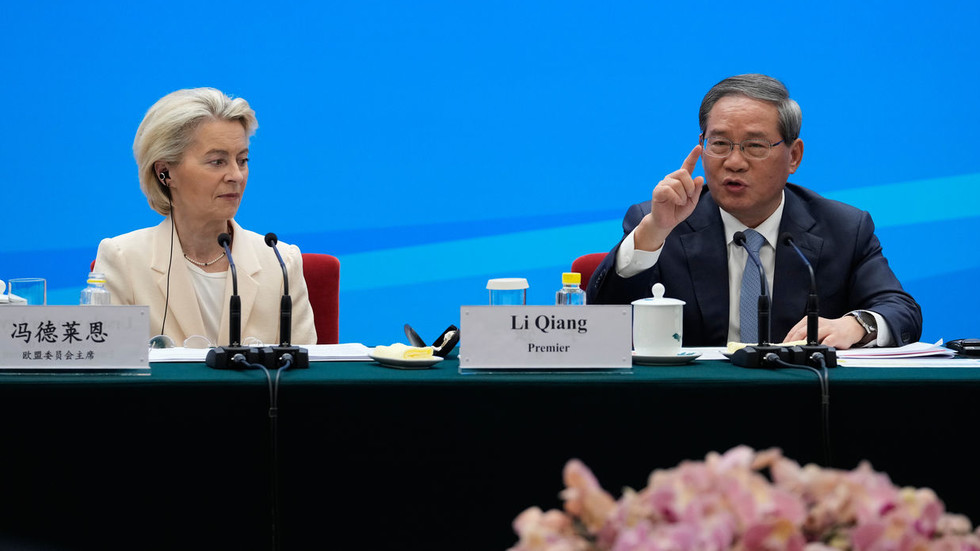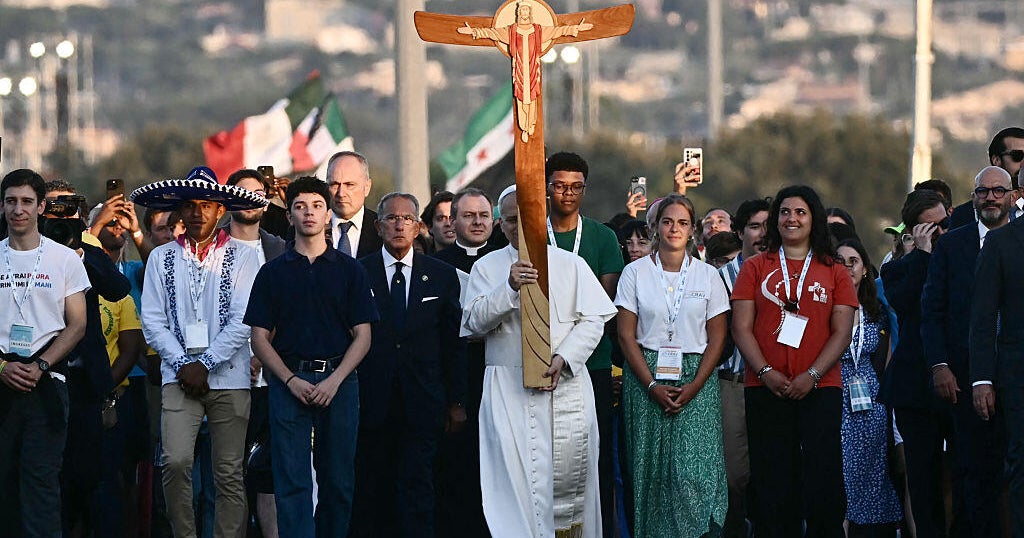In mid-September, Syrians are set to elect their new parliament for the first time since the fall of the authoritarian Assad regime, which had shaped the country's politics for over half a century.
The new parliament in Damascus is expected to have 210 members, 60 more than the current provisional parliament, which was formed in March this year. The new parliament will serve for a transitional period of three years, at the end of which a new constitution is to be adopted. Foreign election observers are allowed.
Areas that are not under government control at present, such as the Kurdish-controlled regions and the predominantly Druze province of Sweida, which was recently shaken by violent unrest, will continue to have seats allocated on the basis of their population, according to the Syrian state news agency SANA.
 There's little trust between Syria's minorities and the interim government in Damascus Image: Aya Ibrahim/Mohamad Chreyteh/DW
There's little trust between Syria's minorities and the interim government in Damascus Image: Aya Ibrahim/Mohamad Chreyteh/DWMultiple challenges
The fact that elections are taking place is a truly historic moment, said Sarah Bassisseh, a political scientist researching at the University of Tübingen. "Syriais going through a difficult transition phase. But the fact that the country now has a new electoral system gives many Syrians great hope, even if they are aware of the difficulties associated with the elections, particularly the general loss of trust among smaller sectarian and ethnic groups in the government," she said.
This makes it all the more important for the country's political leader, Ahmed al-Sharaa, to convince these groups that the elections are transparent and legitimate.
Middle East expert Birgit Schaebler, historian and professor at the University of Erfurt and director of the Orient Institute in Beirut until 2022, takes a similar view.
To characterize the upcoming elections, she compares them to the practices under the ousted Assad regime: under the rule of former president Bashar Assad, two-thirds of the seats automatically went to the dominant Baath Party and its allies. "This meant they could never lose," she told DW.
"The parliament was correspondingly weak and it was primarily a debating club that rubber-stamped the president's directives," she explained.
That is now set to change: 140 members of parliament are to be elected in a democratic process by regional electoral committees, although the details are yet to be clarified.
The remaining 70 members of parliament are to be appointed by interim president Ahmed al-Sharaa.
However, the president's significant influence on the elections is seen particularly controversial in Syria, especially since not all citizens and population groups believe that he has truly distanced himself from his former militant Islamist links.
Are diversity and integration at stake?
"Even in his current government, Ahmed al-Sharaa surrounded himself with people close to him," said Sarah Bassisseh. "It is composed of close associates," she explains.
In her view, the appointment of a Christian, Hind Kabawat, as Minister of Social Affairs was intended to demonstrate diversity and inclusivity. "But many Syrians are skeptical that this is a sincere gesture and isn't intended to distract from the fact that the government as a whole is heavily dominated by al-Sharaa's confidants," she told DW.
In turn, parts of the population fear that this policy will continue with regard to the new parliament. "It is at least unclear how diverse and inclusive it will ultimately be," Bassisseh said.
Scepticism also prevails due to the fact that the remaining 140 members of parliament will not be directly elected, but rather appointed by regional electoral committees.
However, Birgit Schaebler doubts that direct elections would even be possible given the severely weakened infrastructure and logistics caused by 14 years of civil war.
She points out that al-Sharaa is sticking to the election date despite the recent violence in the Druze region. "He could have postponed it, yet the fact that he has not done so can certainly be seen as a positive sign," she said.
Moreover, al-Sharaa is under pressure both nationally and internationally, according to the expert. "The government has lost a great deal of trust as a result of the recent violence and Al-Sharaa must regain that trust," she told DW. The question of who he will appoint to the 70 non-elected seats is likely to be a key factor in this, Schaebler believes. "Of course, ultimately all population groups want to see themselves represented in parliament," she said.
 Observers believe that minorities won't refrain from voting as the dominant position is the quest for a unified SyriaImage: Omar Sanadiki/AP/picture alliance
Observers believe that minorities won't refrain from voting as the dominant position is the quest for a unified SyriaImage: Omar Sanadiki/AP/picture allianceSkepticism among minorities
It remains to be seen whether religious and ethnic minorities will participate in the election, and if so, to what extent following the violence of recent weeks, Sarah Bassisseh said. She believes that members of these groups are likely to be cautious, at the very least.
"It is important here to emphasize that there has been a systematic exclusion of some groups, including women, from state politics and institutions, which was greatly intensified by recent violence," she told DW, adding that "this will potentially pose structural limits to genuine participation by these groups, such as the lack of incentives, lack of safety, and lack of accessibility, just to name a few."
Bassisseh finds it therefore particularly questionable whether a fair and genuine participation of different ethnic and religious groups will be seen. "The lack of trust in both the government and the credibility of the electoral process itself might disincentivize authentic engagement of some of these groups," she said, emphasizing that "there isn't a guarantee of fair representation for them in the final 140 seats, any representation they might get from the presidential 70 seats will be tailored to the government's parameters."
Schaebler is somewhat more optimistic although she agrees that trust between the government and minorities has been damaged. She also points out that some minorities, such as the Druze, are themselves politically divided.
For example, Druze leader Hikmat al-Hijri is not particularly inclined to engage in compromise with the Syrian government. Instead, he maintains close contacts with Israel, whose armed forces provided military support to the Druze in their conflict with Sunni Bedouins and parts of the government forces in July.
"Still, I consider it unlikely that al-Hijri's faction could prevail," said Schaebler. She therefore does not expect the Druze to boycott the election. "Not only among the Druze, but also among the other minorities, most people will want to participate in the new Syria, provided the government respects their regional and local interests."
This article was originally written in German.

 9 hours ago
3
9 hours ago
3








